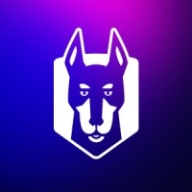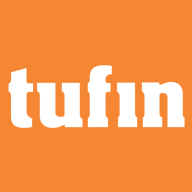

Tufin Orchestration Suite and Snyk offer robust security solutions but cater to different aspects of security management. Tufin excels in network security compliance, while Snyk focuses on code security and vulnerabilities in open-source libraries. Users appreciate Tufin's advanced policy automation and integration capabilities, but Snyk's comprehensive vulnerability detection and developer-friendly tools provide considerable value.
Features: Tufin Orchestration Suite is praised for its extensive policy automation, integration with various firewalls, and compliance management. Snyk stands out with strong vulnerability scanning, integration with developer workflows, and detailed security insights directly in development tools.
Room for Improvement: Users suggest Tufin Orchestration Suite could improve in areas like more intuitive navigation and reduced complexity in setup. For Snyk, users desire enhancements in expanding language support and more comprehensive reports.
Ease of Deployment and Customer Service: Tufin Orchestration Suite has a demanding deployment process that could benefit from simplification, though its customer service is highly rated. Snyk offers a seamless and fast deployment experience with solid customer support.
Pricing and ROI: Tufin Orchestration Suite is considered more expensive with higher setup costs but offers significant long-term ROI through enhanced security policies. Snyk, while less costly upfront, also provides excellent ROI by integrating security into development processes.
The Orchestration Suite saves time when implementing rules.
Their response time aligns with their SLA commitments.
Our long-standing association has ensured smooth communication, resulting in favorable support experiences and satisfactory issue resolution.
We could understand the implementation of the product and other features without the need for human interaction.
In recent years, they have stopped providing specialized engineering support.
The support team is effective; they connect to the network quickly and help resolve any issues that arise.
The team is eager to help in fixing issues.
Snyk allows for scaling across large organizations, accommodating tens of thousands of applications and over 60,000 repositories.
As we are moving toward GenAI, we expect Snyk to leverage AI features to improve code scanning findings.
It lacks the ability to select branches on its Web UI, forcing users to rely on CLI or CI/CD for that functionality.
The inclusion of AI to remove false positives would be beneficial.
The analytics features of Tufin Orchestration Suite are challenging to use and require technical expertise, which is a concern as there is not much knowledge in this field in Thailand.
Issues can arise in larger enterprises, particularly concerning policy-based forwarding and NAT traffic.
The design needs improvement, particularly in recognizing target devices and target files.
After negotiations, we received a special package with a good price point.
Snyk is less expensive.
Snyk is recognized as the cheapest option we have evaluated.
FireMon and Skybox are considered more cost-effective.
The pricing of Orchestration Suite is high, which is a point for improvement.
Tufin and AlgoSec are at the same level in terms of pricing.
Snyk helps detect vulnerabilities before code moves to production, allowing for integration with DevOps and providing a shift-left advantage by identifying and fixing bugs before deployment.
Our integration of Snyk into GitHub allows us to automatically scan codebases and identify issues, which has improved efficiency.
The best feature of Snyk is the integration with our ticketing system, which is Jira.
AlgoSec adds more value with its vulnerability control, which benefits organizations by reducing expenses associated with audits.
New employees can quickly grasp the various IPs, devices, and the network's logical and physical layout within a short period.
It offers automation capabilities that are very helpful, especially for network security orchestration and applying policies.
| Product | Market Share (%) |
|---|---|
| Snyk | 6.5% |
| SonarQube Server (formerly SonarQube) | 20.4% |
| Checkmarx One | 10.4% |
| Other | 62.7% |
| Product | Market Share (%) |
|---|---|
| Tufin Orchestration Suite | 22.6% |
| AlgoSec | 22.8% |
| FireMon Security Manager | 17.8% |
| Other | 36.8% |


| Company Size | Count |
|---|---|
| Small Business | 20 |
| Midsize Enterprise | 9 |
| Large Enterprise | 21 |
| Company Size | Count |
|---|---|
| Small Business | 29 |
| Midsize Enterprise | 13 |
| Large Enterprise | 152 |
Snyk excels in integrating security within the development lifecycle, providing teams with an AI Trust Platform that combines speed with security efficiency, ensuring robust AI application development.
Snyk empowers developers with AI-ready engines offering broad coverage, accuracy, and speed essential for modern development. With AI-powered visibility and security, Snyk allows proactive threat prevention and swift threat remediation. The platform supports shifts toward LLM engineering and AI code analysis, enhancing security and development productivity. Snyk collaborates with GenAI coding assistants for improved productivity and AI application threat management. Platform extensibility supports evolving standards with API access and native integrations, ensuring comprehensive and seamless security embedding in development tools.
What are Snyk's standout features?Industries leverage Snyk for security in CI/CD pipelines by automating checks for dependency vulnerabilities and managing open-source licenses. Its Docker and Kubernetes scanning capabilities enhance container security, supporting a proactive security approach. Integrations with platforms like GitHub and Azure DevOps optimize implementation across diverse software environments.
Tufin enables organizations to automate their security policy visibility, risk management, provisioning and compliance across their multi-vendor, hybrid environment. Customers gain visibility and control across their network, ensure continuous compliance with security standards and embed security enforcement into workflows and development pipelines.
We monitor all Application Security Tools reviews to prevent fraudulent reviews and keep review quality high. We do not post reviews by company employees or direct competitors. We validate each review for authenticity via cross-reference with LinkedIn, and personal follow-up with the reviewer when necessary.